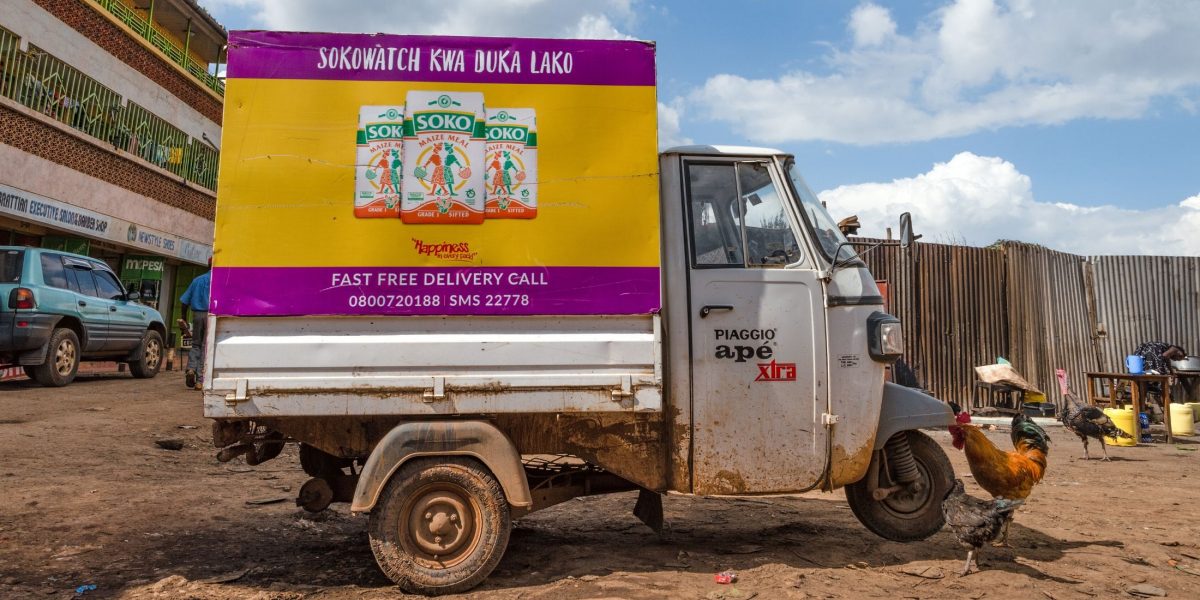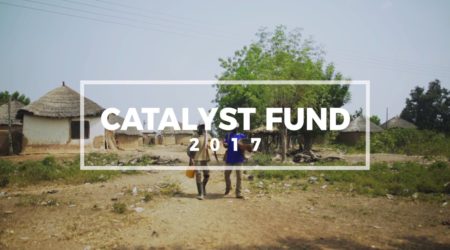From the Valley of Death to a $14 Million Series A: Sokowatch, Quona and the Role of Philanthropic Capital

From the Valley of Death to a $14 Million Series A: Sokowatch, Quona and the Role of Philanthropic Capital
This article was originally posted on Next Billion here.
Catalyst Fund portfolio company Sokowatch recently raised a $14 million Series A round, led by Quona Capital, a leading fintech investor in emerging markets. Sokowatch is a business-to-business e-commerce provider that allows informal retailers to order inventory directly from fast-moving consumer goods suppliers and receive free, same-day delivery. Thanks to merchant data, Sokowatch is able to extend a rotating credit line to its customers, enabling these retailers to better manage their inventory and sell more. Today, the company is looking to expand its offering to include even more digital financial services that can further improve the financial health of the merchants it serves.
But though it’s now a story of startup success, Sokowatch was in danger of reaching the end of its runway only two years ago, and nearly had to make the difficult decision to close shop. Fortunately, access to philanthropic capital, combined with in-depth venture-building support, played a critical role in keeping this high-impact, inclusive fintech startup alive, and brought it to the point where it could secure commercial investment.
As the funding landscape in Africa faces continued scrutiny, investors and startups are considering alternative sources of capital and investment approaches that can work for businesses at different stages of their journeys. To that end, Catalyst Fund’s model shows us how philanthropic capital can be leveraged at the early stage, to help more inclusive businesses in emerging markets survive the “valley of death” and position themselves for investment.
How grant capital kept the lights on
Catalyst Fund is a philanthropically-funded acceleration program designed to help inclusive fintech ventures in emerging markets find product-market fit and become investment-ready. Companies are selected to join the program via an Investor Advisory Committee composed of six investors who have years of experience investing in and supporting companies in emerging markets and fintech – including Quona Capital.
In 2018, the Quona team recognized that Sokowatch had a high-impact, scalable idea. But they also saw that the startup did not yet have the growth or traction numbers to attract investment, so they nominated them to be considered for the Catalyst Fund program. As a portfolio company, they would receive $100,000 in flexible grant capital and deep venture-building support, to meet some of the milestones Quona wanted to see.
For Sokowatch, this support came just in time. They had been weeks away from closing their seed funding round when their lead investor suddenly went belly up. They were too early for investors like Quona, and it would have been too late to start a search for seed investors that could lead the round. The grant money from Catalyst Fund gave them just enough runway to keep the lights on, keep their team, and recruit other seed investors for the round. Most startups would go bankrupt in this situation, but funding from Catalyst Fund was critical in helping Sokowatch weather the storm.
Many startups find themselves in a similar situation: facing the valley of death, but with few options to raise quick and flexible capital. Unfortunately, capital, resources and support systems for entrepreneurs in emerging markets are thin, so many find their businesses failing before they have the chance to demonstrate value. In developed markets, entrepreneurs look to angel networks for capital as well as strategic advice at this stage. But these networks, which Beyond Capital calls “a healthy foundation for startup ecosystems,” are either nascent or non-existent in emerging markets.
Beyond posing challenges to raising capital, emerging markets are also difficult and unpredictable for operations: Technological and logistics infrastructure are fragmented and unreliable, and talent is often hard to come by. So startups must bootstrap even the basic building blocks, like payment systems and warehousing, as they work to innovate groundbreaking new products and models.
“In the ecosystem in which we operate, where you don’t have reliable third party logistics providers, unified payment solutions, or an existing digitized registry for small businesses, we had to build out the solutions to these different parts of the business ourselves,” said Sokowatch Co-Founder and CEO Daniel Yu. But ultimately, pushing through those challenges has worked out in their favor. “Now, that hard work has paid off and presents a huge barrier to entry – a huge moat – for anyone looking to replicate what we’re doing.”
The need for ‘de-risked’ early stage startups
These barriers to growth mean that investors are often presented with startups that are too early, too risky or too expensive. The fluctuations and complications of emerging markets raise risks, so most investors prefer to stay in established markets or, at most, venture to India, China or Russia. Combine this hesitation with inclusive business models that lack demonstrable traction, and the result is that there are only a few startups that are considered “investment worthy.” This scarcity of opportunities concentrates investment in just a few startups, driving up valuations. The MIX’s Inclusive Fintech 50 found that of the 110 fintech companies headquartered in Africa that applied to the competition, just seven captured 70% of the funding.
As an impact investor, Quona was already prepared for the risk levels in emerging markets, but still felt Sokowatch was too early to consider. Partners Monica Brand Engel and Johan Bosini turned to Catalyst Fund as a resource to de-risk Sokowatch before they could consider investing. “Thinking back to our investment thesis – we work with institutional investors that are new to venture capital in emerging markets, and actually think it has great potential, but it’s just still very young globally,” Brand Engel said. “One way we de-risk [startups] for institutional investors is by looking at firms that have demonstrated product-market fit. Often there are great companies that have not met that threshold, but we’ve seen really strong potential. Or in the case of Sokowatch, they were a phenomenal business but hadn’t yet ventured into financial services.”
Beyond capital, startups need venture building support
Catalyst Fund works to de-risk early-stage inclusive fintech startups like Sokowatch via a package of grant capital, in-depth venture building support and 1:1 engagement with investors. This combination is extremely valuable for promising startups that lack a bit of expertise or capital to get to an additional proof point or target that could be a turning point for investment.
While the capital was a lifesaver for Sokowatch to get a bit of runway, most Catalyst Fund CEOs credit the venture building with transforming their business. The venture-building support is delivered by a team of consultants from BFA Global, which manages Catalyst Fund. They join the startup’s team to solve urgent problems in finance, tech, product or customer experience. They conduct an initial diagnostic in collaboration with the startup’s leadership to create a clear roadmap that includes four to six months of in-depth, hands-on technical assistance tailored to the unique needs and market segment of the startup.
In the case of Sokowatch, with an understanding of the particular milestones the Quona team was looking to see, Catalyst Fund’s Venture Builders went to the field to speak with Sokowatch merchants and gain a better understanding of their needs and their financial health. They worked with Yu and his team to develop a simple credit line that would help small merchants benefit from more convenient payment flexibility to make orders from fast-moving consumer goods suppliers. The transaction data stored by Sokowatch was a treasure trove that could be used to design a credit product that made sense for informal retailers. This was the first step in their decision to add a wider range of financial services that could benefit their customers via their platform, leveraging data and familiar touchpoints to ensure adoption.
Today, Quona and Yu credit Catalyst Fund with helping Sokowatch advance their business model and become investment-ready. While Catalyst Fund startups beat the average in terms of team growth and fundraising, the Sokowatch-Quona story further validates their investor-driven selection model. With Catalyst Fund’s support and Quona’s mentorship, Sokowatch was able to quickly grow from a bootstrapped team with a month of cash in the bank, to an early-stage startup with several years of runway.
For Catalyst Fund, Sokowatch’s $14 million series A provides evidence that philanthropic capital has a vital role to play – combined with expert mentorship and technical support – at the very early stage of the investment continuum.
Ventures like Sokowatch are extremely vulnerable to economic downturns because of the environment in which they operate, but they are also the companies with the most potential to change lives for underserved populations in the long term. As a sector, we need to continue to create instruments that can ensure support for high-impact companies along different stages of their development, and attract more diverse sources of capital to invest in them.


